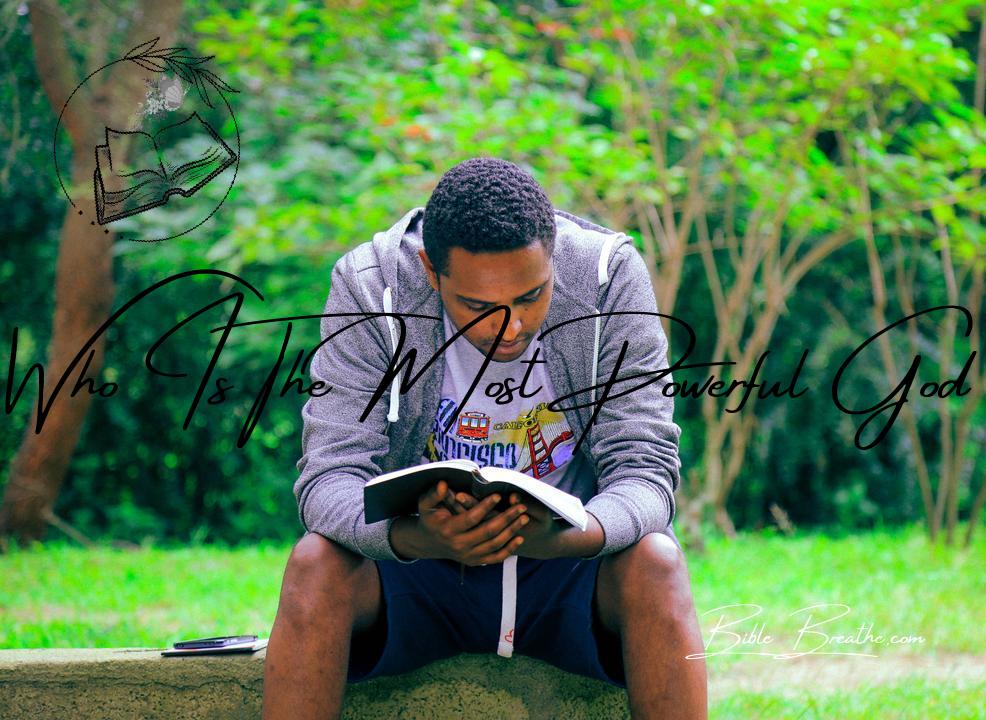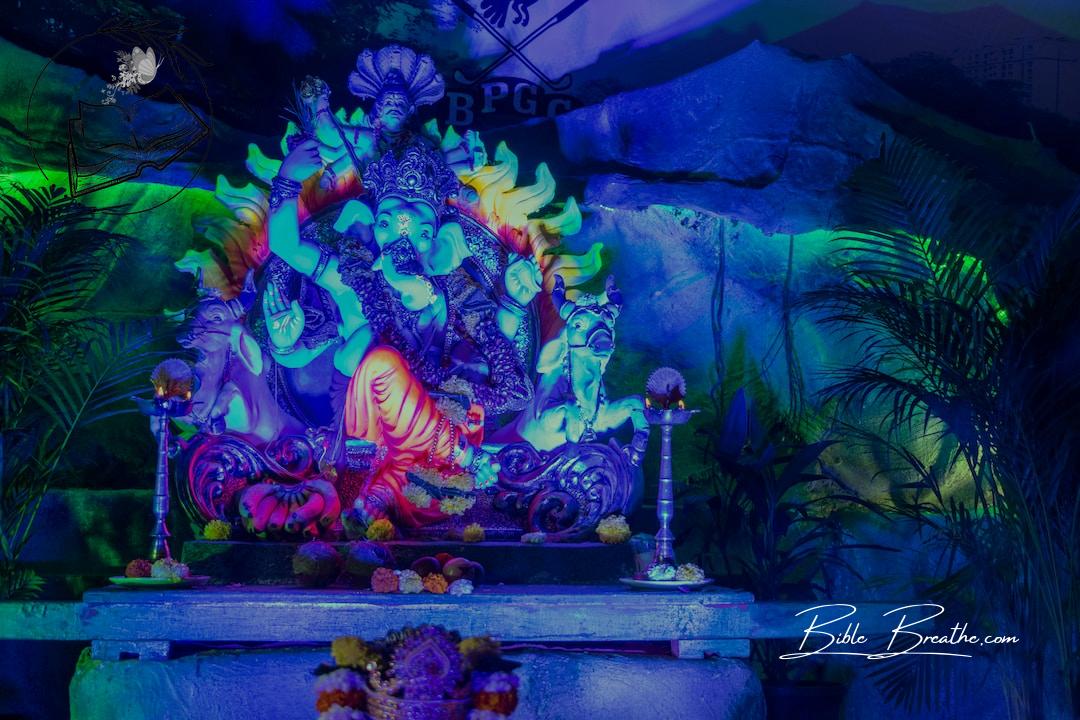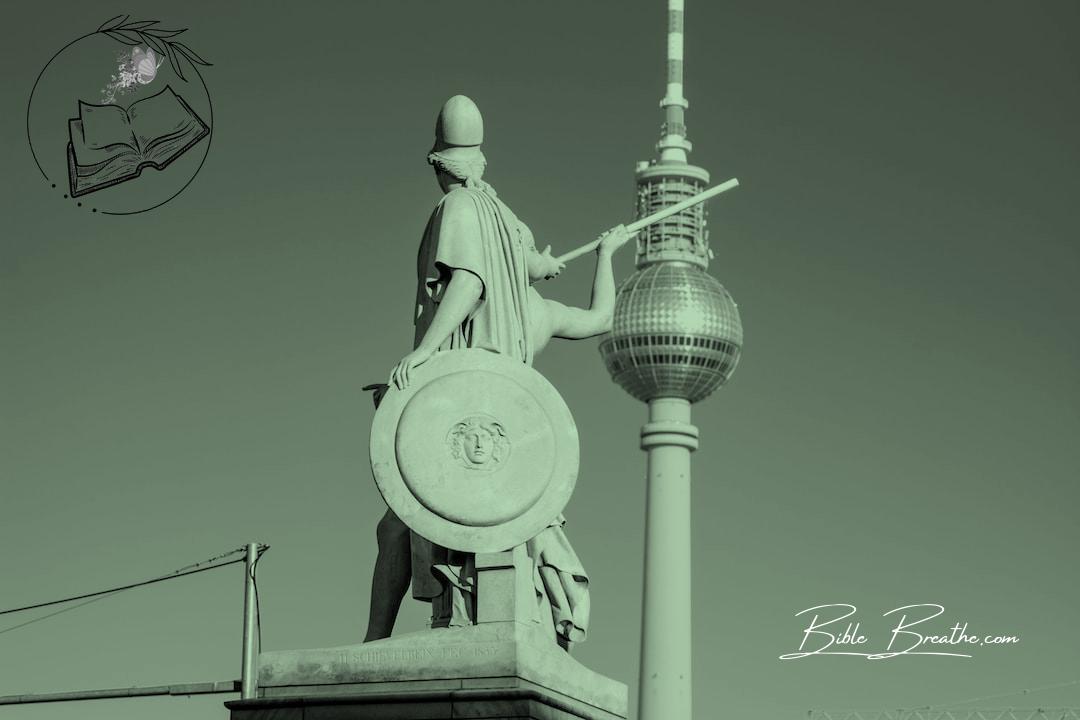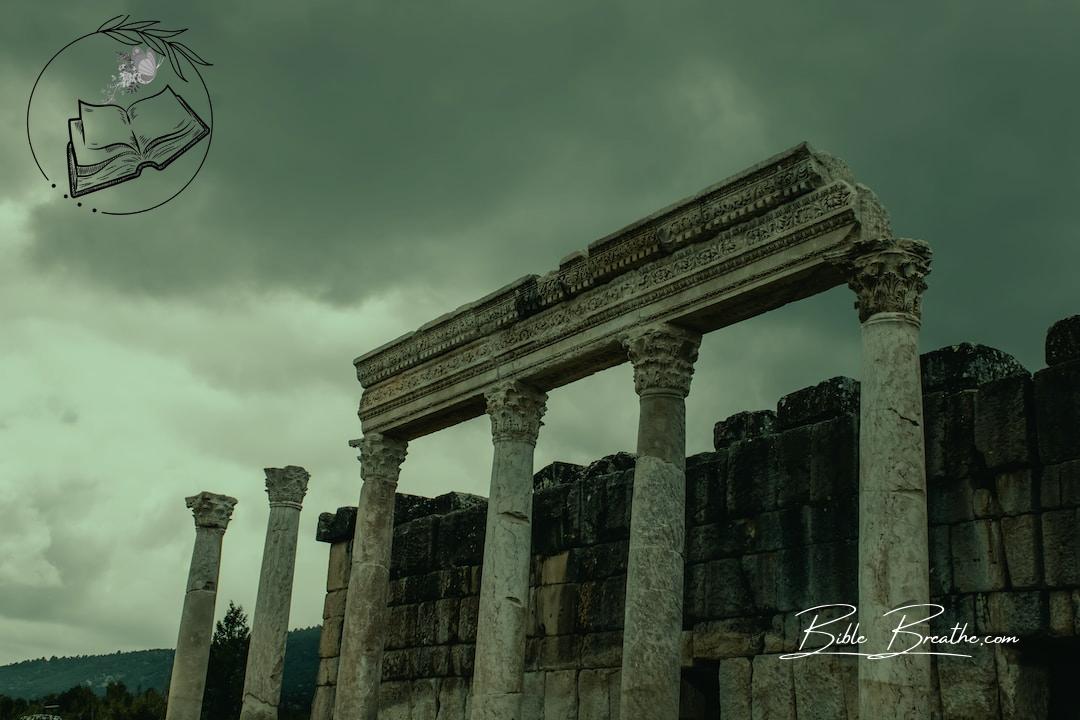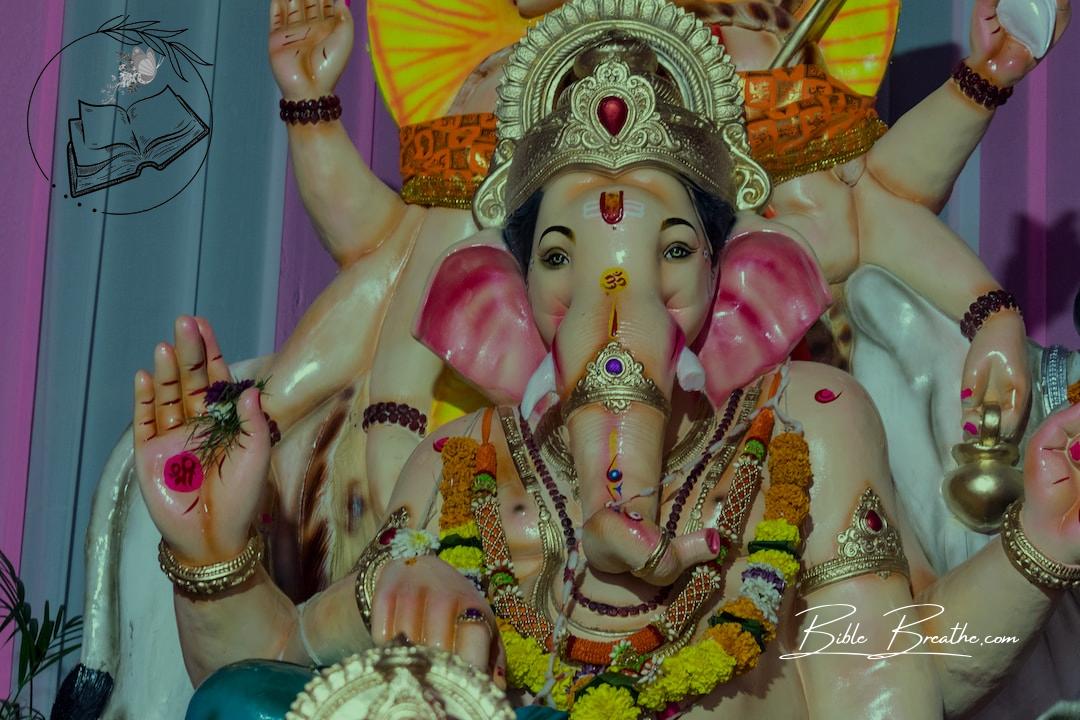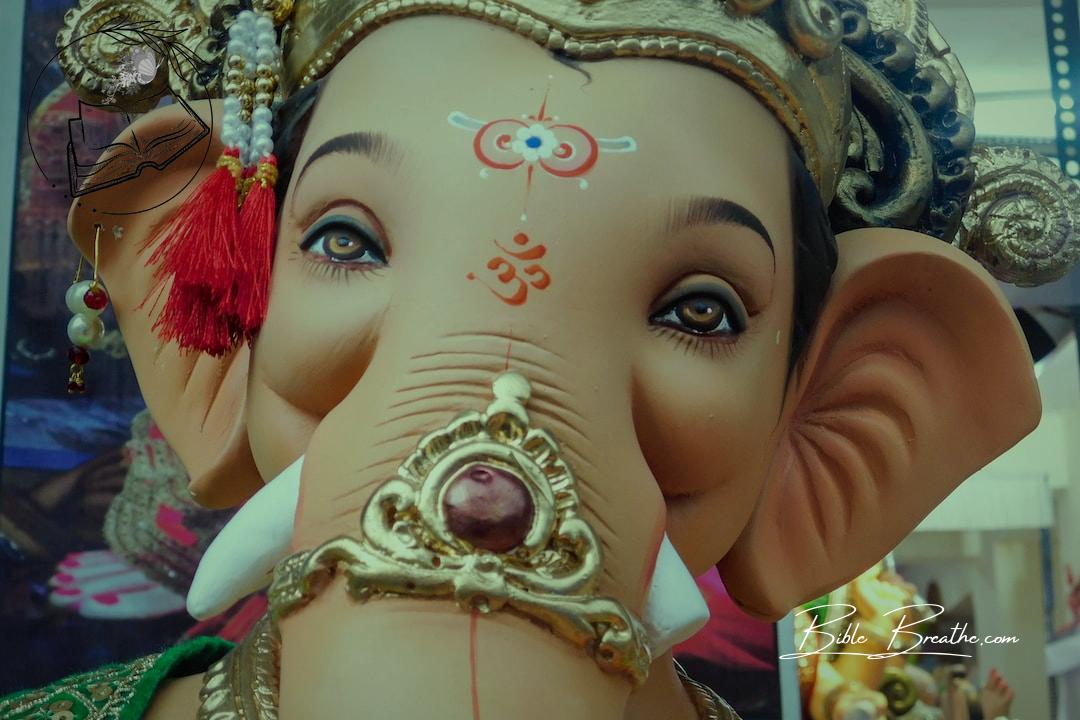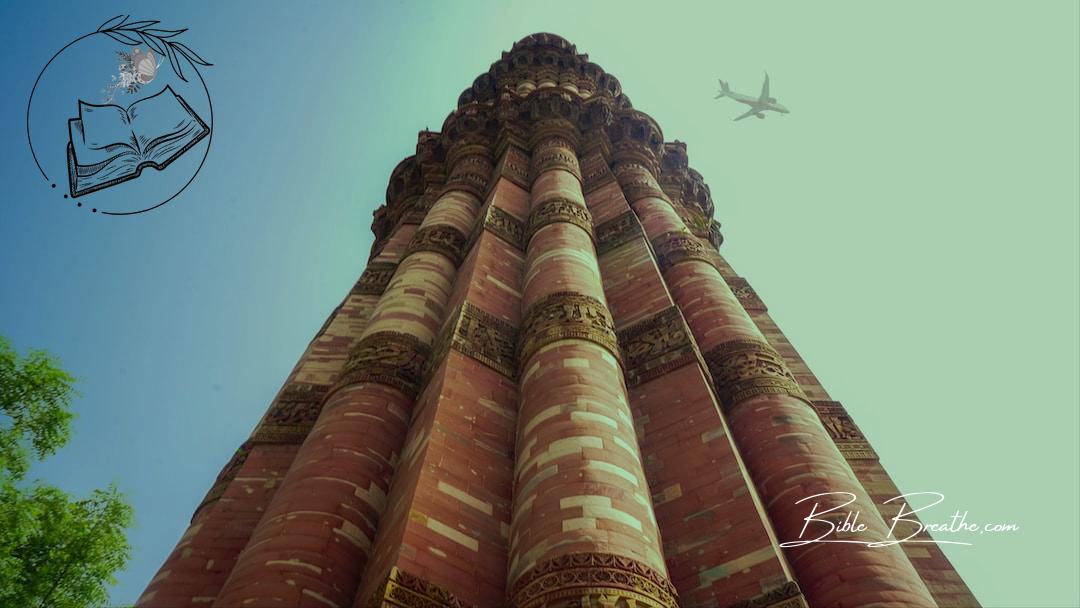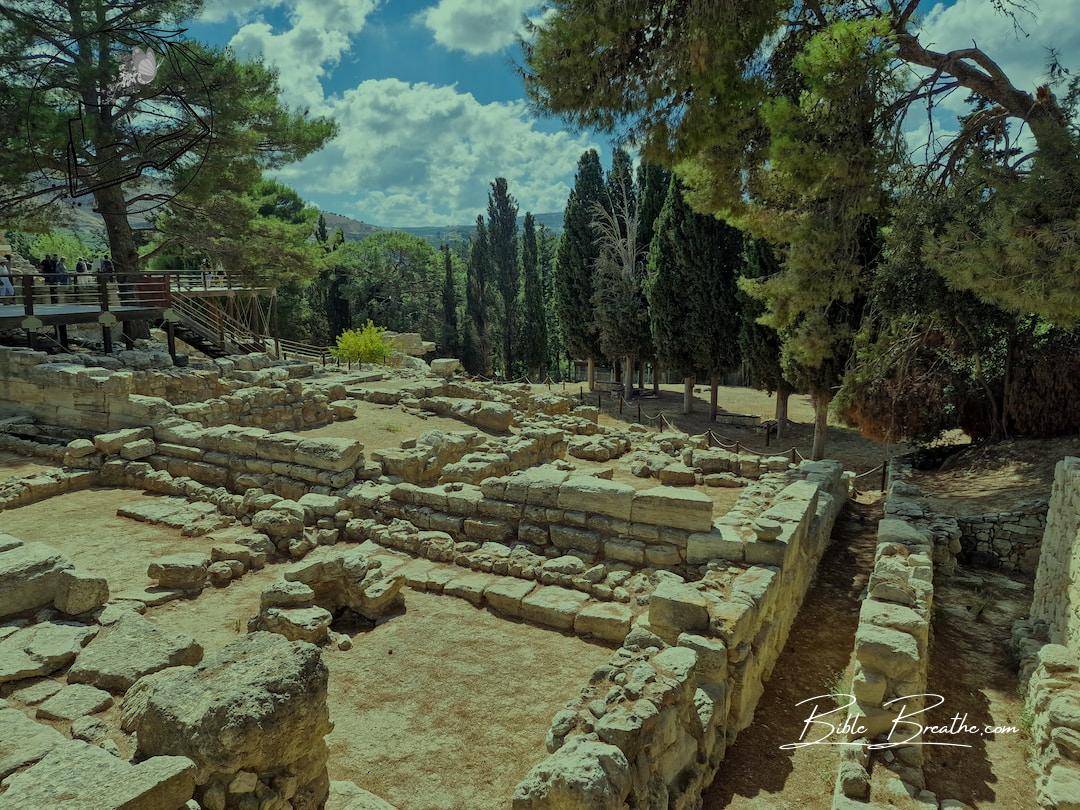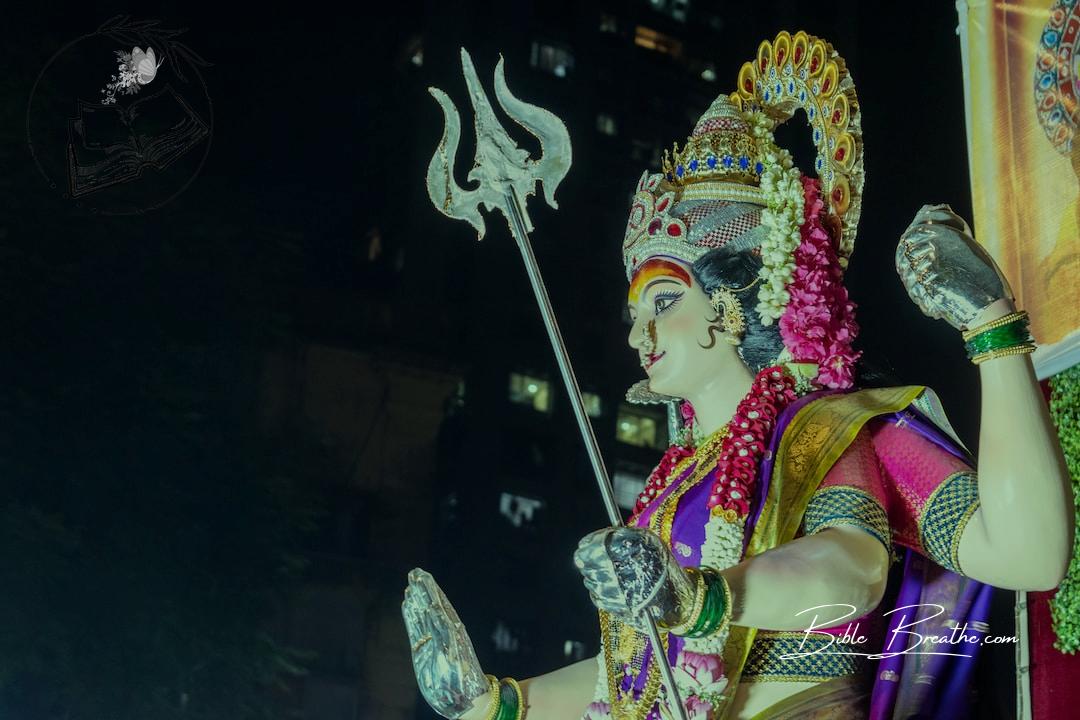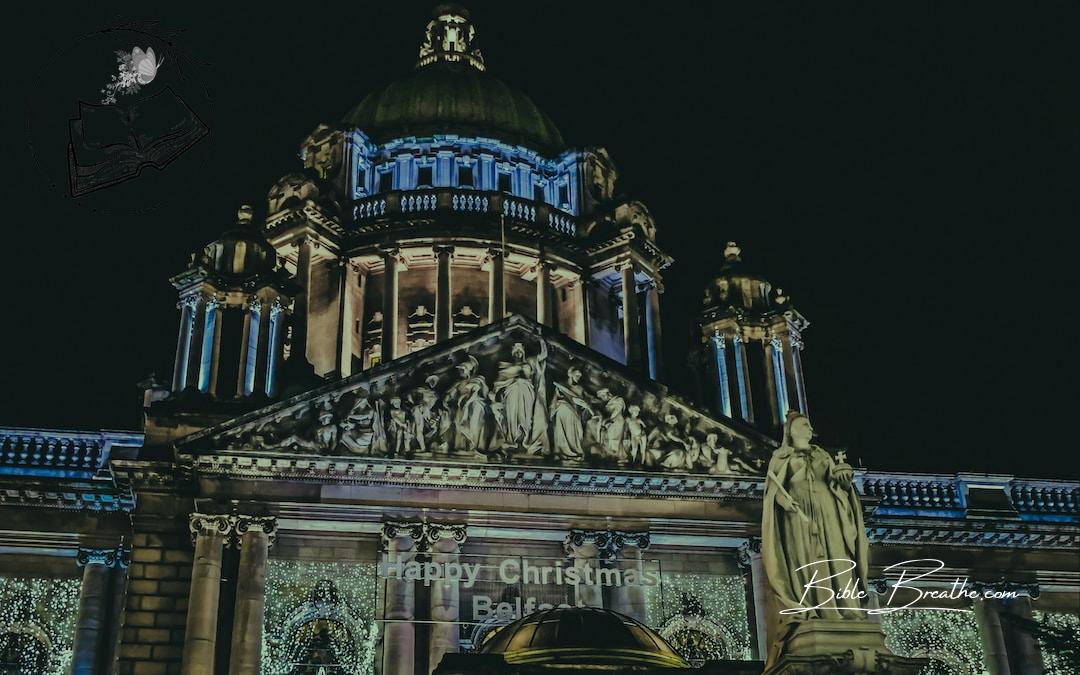Who’s the heavyweight champion of the divine arena?
It’s like a cosmic showdown between superstars, from Zeus to the Almighty himself.
Think of them as the spiritual MVPs in this epic game of faith.
In our world of diverse beliefs, these powerhouses stand tall.
They’re like the rock stars of spirituality, with fans worshipping their every move.
From ancient rituals to holy scriptures, they’ve got it all.
But what’s the secret sauce that makes a god the ultimate powerhouse?
Is it their immortality, heavenly aura, or being everywhere at once?
So, get ready for a journey through the spiritual arena, where we’ll decode what it means to be the “God of all gods.”
It’s time to uncover the divine playbook and explore the sacred and supernatural.
Are you in for the ride?
🌟
Key Takeaways
- The search for the most powerful god is a complex and deeply subjective matter, often shaped by individual beliefs and cultural contexts. It highlights the universal human need for spiritual guidance and comfort, as people across the world have sought to understand and connect with higher powers throughout history.
- Powerful gods have played a profound role in shaping cultures and faiths worldwide. These deities have influenced art, mythology, rituals, and moral codes. They have been both a source of inspiration and a source of division among different groups of people.
- The enduring significance of powerful gods in modern times is evident in the persistence of religious traditions, the diversity of faiths, and the ongoing dialogue about the divine. While beliefs and practices may evolve, the concept of powerful gods continues to provide a source of meaning, purpose, and hope for countless individuals.
- It is essential to approach discussions about the most powerful god with respect for the diversity of beliefs and perspectives worldwide. Such conversations can foster greater understanding and appreciation for the rich tapestry of human spirituality and the ways in which powerful gods have shaped our shared history and continue to influence our lives today.
The Unmatched Power of Jesus Christ
Photo modified by BibleBreathe.com. Original photo by Rod Long on Unsplash
In this vast ocean of beliefs and divine entities, there’s one figure who emerges as a lighthouse of hope, love, and unmatched power: Jesus Christ.
He’s not just a name; he’s the epicenter of Christianity, a bright light whose teachings and influence have shaped our world in profound ways.
Jesus Christ: More Than a Figure
Jesus Christ, often called the Son of God, stands at the very core of Christianity, a faith embraced by millions across the globe.
His life, as portrayed in the Bible, goes beyond being just a man; it paints the picture of a divine being, a deity in the spiritual tapestry.
The scriptures detail his birth, his life, and his teachings, resonating deeply with believers and presenting him as a divine and sacred presence.
Timeless Wisdom in His Teachings
When we dive into the teachings of Jesus Christ, we enter a realm of profound wisdom and understanding.
His words echo through the ages, touching the core of our humanity.
In a world often tarnished by hatred and discord, Jesus advocated for love, forgiveness, and faith.
His philosophy is a guiding light, illuminating a path of compassion, understanding, and acceptance.
“A new command I give you: Love one another. As I have loved you, so you must love one another.” – John 13:34 (KJV)
Miracles and the All-Powerful Presence
The miracles attributed to Jesus are interwoven into the fabric of Christianity.
These extraordinary and supernatural acts depict his all-powerful nature and his divine ability to transcend the ordinary.
Stories of healing the sick, feeding the hungry, and even raising the dead showcase a power that surpasses earthly understanding.
In the eyes of believers, Jesus Christ epitomizes divinity, a celestial being whose influence reaches far beyond temples and rituals.
He remains a beacon of hope and a symbol of unwavering faith, embodying the very essence of a powerful God.
In Closing
The significance of Jesus Christ extends beyond a specific era or a particular group of individuals; it’s a universal truth, a spiritual reality that continues to echo in the hearts and minds of millions.
His teachings, his miracles, and his everlasting impact bear witness to a power that transcends mortal comprehension, a power that continues to shape our world and our beliefs.
Shiva: The Mighty Titan of Transformation
Photo modified by BibleBreathe.com. Original photo by Sonika Agarwal on Unsplash
In the vast canvas of beliefs and divine realms, let’s talk about the powerhouse known as Shiva.
Now, imagine the universe like a vast ocean, and Shiva, a swirling vortex within it, embodying both the forces of destruction and the promise of rebirth—like the ebb and flow of ocean tides.
Shiva: The Supreme Cosmic Force
In the kaleidoscope of Hindu deities, Shiva stands as a paramount figure, deeply revered and adored.
He is the epitome of divine might, representing the eternal, the unchanging, and the ultimate reality.
Amidst the multitude of divine beings, Shiva holds the power of both creation and dissolution.
“To protect the righteous and obliterate the wicked, I manifest myself millennium after millennium.” – Bhagavad Gita 4:7 (KJV)
The Tales and Legends
Shiva’s stories are woven with threads of mythical grandeur.
Imagine a cosmic dance, the Tandava, symbolizing the eternal cycles of creation, preservation, and dissolution.
He embodies both the dancer and the dance, the creator and the destroyer, all in a rhythmic, harmonious balance.
His role as the conqueror of demons illustrates the perpetual battle between good and evil, where Shiva’s omnipotence triumphs over darkness and chaos.
Shiva’s Essence: Destruction and Renewal
Picture a mighty oak falling in the forest, decomposing and giving birth to new life.
Shiva mirrors this eternal cycle.
His act of destruction isn’t a malevolent force; it’s a path to renewal, a chance for new beginnings.
“Out of ashes, the Phoenix shall rise.”
In the grand dance of existence, Shiva embodies the necessary destruction for rebirth, for the world to shed its old skin and emerge anew.
Within the embrace of Shiva’s dance of destruction lies the promise of a fresh start, an opportunity to build anew.
As you navigate your spiritual journey, reflect on the dance of Shiva.
How does destruction and renewal manifest in your own life?
How might you embrace change and growth, knowing it’s an inherent part of a grander design?
In the realm of faith and spirituality, Shiva remains a beacon, reminding us of the cyclical nature of existence and the continuous opportunity for growth and transformation.
🌱
The Brilliance of Athena: Unveiling the Greek Goddess of Wisdom
Photo modified by BibleBreathe.com. Original photo by Daniel Lonn on Unsplash
As we venture into the rich tapestry of ancient Greek mythology, one deity shines brilliantly in the realms of intellect and strength: Athena, the epitome of wisdom, courage, and inspiration.
As we uncover the myths and legends surrounding her, we gain insight into her crucial role in the ancient pantheon and her esteemed position as a guardian of heroes.
Athena: More Than Wisdom
In the world of Greek mythology, Athena is hailed as a symbol of intellect and strategic acumen.
She is revered as the goddess of wisdom, imparting knowledge and sagacity to both mortals and immortals.
The sacred temples dedicated to her were centers of intellectual exploration, where ancient scholars and philosophers sought her divine guidance.
Yet, Athena’s influence extended beyond wisdom; she was also acknowledged as the patroness of courage and inspiration.
Her divine aura encompassed the very essence of creativity, empowering artists, poets, and inventors to push beyond their boundaries.
Myths and Legends: Insights into Athena’s Feats
The myths and legends associated with Athena echo her omnipresence and omnipotence.
One remarkable tale speaks of her birth, where she emerged fully grown and armored from the head of her father, Zeus.
This extraordinary birth symbolizes her wisdom and strategic prowess.
Another significant myth revolves around her rivalry with Poseidon for the patronage of Athens.
Athena’s gift of an olive tree, symbolizing peace and prosperity, won the favor of the city and established her as its protector and namesake.
“In our sleep, pain which cannot forget falls drop by drop upon the heart until, in our own despair, against our will, comes wisdom through the awful grace of God.” – Aeschylus
Athena: Guardian of the Heroes
Athena’s role as a protector of heroes is intricately woven into the fabric of Greek tales.
She guided and supported revered heroes like Perseus and Odysseus, endowing them with her wisdom and courage.
In battles and quests, Athena’s divine presence empowered the heroes, ensuring their triumph against formidable odds.
In Summary
Athena, the goddess of wisdom, courage, and inspiration, epitomizes the power of intellect and strategic might.
Her influence stretched beyond the realm of gods, impacting mortal lives and shaping the course of history.
In the grand tapestry of Greek mythology, Athena stands as a formidable figure, a beacon of wisdom, and a testament to the strength of intellect and courage.
Odin: The Allfather, Supreme Force in Norse Sagas
Photo modified by BibleBreathe.com. Original photo by Mehmet Can Atik on Unsplash
In the frosty realm of Norse tales, imagine Odin reigning supreme, a powerhouse of wisdom and might.
Envision him as that cosmic raven perched high on the branches of the World Tree, keeping a watchful eye over the vast cosmos.
Odin: The Sage of All Knowledge
In the vast tapestry of Norse gods, Odin emerges as a prominent and revered figure.
He’s the eternal seeker and giver of wisdom, a divine scholar on a perpetual quest for knowledge and understanding.
“Fear not, for I am with you; Be not dismayed, for I am your God. I will strengthen you, Yes, I will help you, I will uphold you with My righteous right hand.” – Isaiah 41:10 (KJV)
The Many Facets of the Allfather
Odin’s domain is expansive, covering realms of war, magic, poetry, and intriguingly, even death.
He encapsulates life’s complexities and the inevitability of the end.
With his all-encompassing knowledge, he glimpses the threads of fate, navigating the intricacies of existence.
Odin’s Sacred Duty: Lord of the Fallen and Valhalla
In the Norse beliefs, Odin guides the fallen warriors to Valhalla, the hall of the honored departed.
Picture him as the shepherd of souls, gathering the valiant and the brave, preparing for Ragnarök, the great battle.
Much like a wise elder passing down wisdom to the young, Odin beckons us to accept our journey’s inevitable nature, urging us to honor our deeds and confront life’s trials with bravery.
“For the Lord gives wisdom; from His mouth come knowledge and understanding.” – Proverbs 2:6 (KJV)
In this epic mythological saga, Odin’s omnipotence reminds us to seek wisdom and embrace our destinies, acknowledging that even in the face of death, there is purpose, a divine plan intricately woven into the fabric of our existence.
🌌
Krishna: The Divine Maestro of Hinduism
Photo modified by BibleBreathe.com. Original photo by Sonika Agarwal on Unsplash
In the intricate tapestry of Hindu mythology, there emerges a figure who dazzles as a major deity, enchanting hearts and minds with a celestial aura and profound wisdom: Krishna.
As an incarnation of Vishnu, he embodies not only the divine essence but also imparts profound teachings through the Bhagavad Gita.
Additionally, Krishna’s influence extends to Indian art, literature, and culture, solidifying his place as a pillar of spiritual and cultural richness.
Krishna: The Divine Incarnation
Krishna, revered in Hinduism, is recognized as an avatar of Vishnu, one of the principal deities in Hindu mythology.
As an incarnation, he epitomizes divinity, purity, and divine love.
The tales of his birth, childhood, and adulthood are interwoven with miracles and divine acts, showcasing his omnipotent and celestial nature.
Bhagavad Gita: A Reservoir of Wisdom
One of Krishna’s most profound contributions to humanity is his teachings in the Bhagavad Gita.
Within this sacred scripture, he imparts philosophical and spiritual guidance to the warrior prince Arjuna.
The Gita delves into the concepts of duty, righteousness, and devotion, providing a philosophical foundation for life’s moral dilemmas.
“You have a right to perform your prescribed duties, but you are not entitled to the fruits of your actions.” – Bhagavad Gita 2.47
Krishna’s Impact on Art and Culture
Krishna’s presence isn’t confined to sacred texts and rituals; it resounds through the vibrant fabric of Indian art, literature, and culture.
Paintings, dances, and songs depict his divine pastimes, conveying the essence of his teachings.
His legendary love for Radha and playful interactions with Gopis have inspired countless artistic creations, portraying the spiritual and celestial love that transcends mortal boundaries.
In Summary
Krishna, as the incarnation of Vishnu, holds a revered position in Hindu mythology.
His teachings in the Bhagavad Gita resonate across generations, offering spiritual guidance and insights into life’s complexities.
Moreover, Krishna’s influence extends beyond the spiritual realm, leaving an indelible mark on the rich tapestry of Indian art, literature, and culture.
He stands as a beacon of divinity, wisdom, and celestial love, captivating the hearts of devotees and seekers alike.
Ganesha: The Kindhearted Guide through Life’s Maze
Photo modified by BibleBreathe.com. Original photo by Sonika Agarwal on Unsplash
In the vibrant realm of Hindu mythology, let’s talk about Ganesha, the gentle giant with the elephant head, revered for wisdom, knowledge, and fresh starts.
Imagine Ganesha as that guiding light, brightening the path through life’s intricate labyrinth.
Ganesha: The Wise and Gentle Deity
In the expansive Hindu pantheon, Ganesha, with his elephant-like visage, embodies intellect and wisdom.
He’s the guardian of learning, a deity bestowing seekers with the wisdom to navigate the complexities of life.
“In the beginning was the Word, and the Word was with God, and the Word was God.” – John 1:1 (KJV)
The Tales of Devotion
Ganesha’s tales are woven with threads of love and devotion.
One story shares how he was crafted by the divine mother, Parvati, entrusted with the divine duty of guarding her as she bathed.
When Lord Shiva, his father, arrived unaware of Ganesha’s divine origin, a confrontation ensued, resulting in Ganesha’s iconic elephant head.
Ganesha’s Essence: Clearing Life’s Hurdles
Imagine a path with stones scattered all over; Ganesha is the gentle breeze that clears away these barriers.
He brings smooth beginnings, sweeping obstacles off your life’s journey.
“I can do all things through Christ who strengthens me.” – Philippians 4:13 (KJV)
Reflect on the tapestry of your own life.
Where do you face hurdles?
How might you channel the spirit of Ganesha to pave a clear way?
This is the wisdom Ganesha imparts—a reminder that obstacles are mere stepping stones to success and growth.
Ganesha’s omnipresent aura encourages you to embrace the journey, learn from challenges, and start anew.
In the realm of spirituality, Ganesha’s wisdom shines like a guiding star, urging you to approach life with an open heart and a discerning mind.
🐘
Allah: The Supreme Power in Islam
Photo modified by BibleBreathe.com. Original photo by Arun Anoop on Unsplash
At the heart of Islam stands a singular and all-powerful presence, the axis around which the Islamic faith revolves: Allah.
Allah isn’t just a name; He is the central and revered figure in Islam, embodying beliefs, principles, and the very essence of faith for millions around the world.
Grasping Allah’s nature involves delving into the core beliefs and principles of Islam, including the fundamental tenets encapsulated in the Five Pillars.
Allah: The Singular Deity in Islam
Allah is the singular and absolute deity in Islam, the focal point of worship, prayer, and devotion for Muslims.
He is seen as the one true God, the Creator and Sustainer of the universe, embodying all the qualities of divinity, omnipotence, and sacredness.
Beliefs and Principles: Unveiling Allah’s Nature
Islamic beliefs about Allah revolve around His attributes, which include being merciful, compassionate, just, and wise.
Muslims believe that Allah is all-knowing and all-powerful, holding authority over all aspects of life and the universe.
The Quran, Islam’s holy scripture, serves as the primary source for understanding Allah’s will and guidance.
“He is Allah—there is no deity except Him: the Sovereign, the All-Powerful, the All-Wise.” – Quran 3:62
The Five Pillars of Islam: A Guiding Path
The Five Pillars of Islam encapsulate the core beliefs and practices that form the foundation of a Muslim’s life.
They include the declaration of faith (Shahada), prayer (Salah), fasting during Ramadan (Sawm), almsgiving (Zakat), and pilgrimage to Mecca (Hajj).
These pillars serve as a spiritual framework, guiding the faithful towards a life of devotion, discipline, and compassion.
In Summary
Allah, the central figure in Islam, is the epitome of divinity and sacredness for Muslims worldwide.
Understanding Allah involves delving into the core beliefs and principles of Islam, shaping the way of life for millions.
The Five Pillars serve as a path to devotion, guiding believers towards a life anchored in faith, compassion, and reverence for Allah, the most powerful and benevolent deity in the Islamic faith.
Zeus: The Supreme Sovereign of Olympus
Photo modified by BibleBreathe.com. Original photo by Martijn Vonk on Unsplash
In the epic tales of Greek mythology, let’s dive into Zeus, perched atop Mount Olympus, a kingly figure brandishing mighty thunderbolts.
Imagine him as the storm both in the heavens and the hearts of men, commanding elements and passions alike.
Zeus: The Royal Deity
In the rich tapestry of ancient Greece’s pantheon, Zeus ascends the throne as the king of gods and mortals.
He embodies power, authority, and the unfolding of fate.
Zeus oversees the cosmos’ order, orchestrating events in the divine play of existence.
“For by him were all things created, that are in heaven, and that are in earth, visible and invisible, whether they be thrones, or dominions, or principalities, or powers: all things were created by him, and for him.” – Colossians 1:16 (KJV)
The Thunderous Myths and Amorous Adventures
Zeus’s myths resonate with thunder and lightning, symbolic of his mastery over the weather.
The tales of his romantic escapades, morphing into various creatures to seduce, remind us of the intricate interplay between divine might and human desires.
Zeus’s Influence on Western Thought
Zeus’s influence echoes through the corridors of Western culture.
He transcends myth, embodying the very essence of authority and governance.
The concept of a supreme ruler, a paternal figure watching over all, finds its origins in Zeus and his reign.
“I am Alpha and Omega, the beginning and the ending, saith the Lord, which is, and which was, and which is to come, the Almighty.” – Revelation 1:8 (KJV)
Contemplating Zeus’s grandeur, ponder the constructs of power and governance in our own lives.
How do we yield our power?
Are we fair and just in our decisions?
Zeus, as a symbol, challenges us to wield power wisely and benevolently, just as thunder can be both mighty and gentle, depending on its purpose.
In the vast narrative of myth and faith, Zeus remains a timeless emblem of authority and the divine order, inviting us to introspect on our own roles in the intricate web of existence.
⚡
The Supreme Preserver: Who’s Got the Cosmic Power?
Photo modified by BibleBreathe.com. Original photo by Sonika Agarwal on Unsplash
Alright, fam, if you’re ever wondering about the big cheese in Hinduism, the one who’s got the cosmic juice, let me introduce you to Vishnu.
This guy is like the ultimate superhero in the Hindu pantheon.
Vishnu: The Cosmic Custodian
Vishnu is more than just a bigwig deity; he’s the universe’s ultimate caretaker.
Imagine you’ve got this incredible vintage car, and you want to make sure it stays in pristine condition.
That’s Vishnu’s gig on a universal scale.
He’s the one who keeps everything from falling apart.
Cosmic Harmony: It’s All About Dharma
Now, to get what Vishnu’s all about, you’ve gotta wrap your head around this concept called dharma.
Think of it as the rulebook for the cosmic game of life.
Vishnu’s job?
He’s like the referee, ensuring the game runs smooth.
He’s all about keeping things in balance, making sure the good guys win, and the bad guys don’t mess things up.
It’s not about who’s got the most muscle; it’s about being wise and responsible.
Vishnu’s the poster child for that.
“The Supreme Lord is like that friend who’s got your back, making sure the good guys win and the cosmic game stays on point.” – Bhagavad Gita 4:7 (KJV)
Devotion, Legends, and All That Jazz
People honor Vishnu in tons of different ways.
They’ve got these beautiful temples dedicated to him, kind of like fandom conventions but on a cosmic scale.
And the stories and scriptures?
Man, they’re like the best superhero comics, full of epic adventures and lessons on doing the right thing.
In the world of gods, Vishnu is that friend who’s like your guide through life, helping you navigate the crazy twists and turns.
When you think about power in the divine realm, it’s not just about flexing your muscles; it’s about taking care of business, being responsible, and Vishnu’s the role model for that.
“Vishnu, the Cosmic Custodian, teaches us that real power isn’t about muscles; it’s about holding the universe together with wisdom and responsibility.” – Bhagavad Gita 4:8 (KJV)
So, there you have it, fam.
When you’re talking about cosmic power in Hinduism, Vishnu’s the man to keep on your radar.
He’s the guardian of the universe, the champion of dharma, and the guru of wisdom.
Who’s the Ultimate Powerhouse? Unpacking Vishnu in Hinduism
Photo modified by BibleBreathe.com. Original photo by K. Mitch Hodge on Unsplash
Hey there, fam!
I know you’ve probably wondered at some point, “Who’s the top dog in the spiritual realm?”
Well, let’s dive into Hinduism and unravel the enigma of Lord Vishnu.
Vishnu: A Heavyweight in Hinduism
In the vibrant world of Hindu gods and goddesses, Vishnu is like the rockstar who steals the show.
He’s not just a one-hit wonder; he’s a recurring sensation.
So, what makes Vishnu such a force to be reckoned with?
Keeping the Universe in Check
Imagine the universe as a massive circus tent, with cosmic acts playing out everywhere.
Now, think of Vishnu as the ringmaster – the one who keeps everything in perfect balance.
Just like a juggler skillfully keeps those balls in the air, Vishnu ensures that our cosmos stays harmonious.
He’s the ultimate peacekeeper, the cosmic referee.
In the grand Hindu saga, the universe goes through these cycles of creation, preservation, and destruction.
Brahma, another deity, takes care of creating stuff, and Shiva, another heavyweight, handles the whole destruction gig.
Vishnu, however, is the one who holds it all together.
He’s like the anchor in the storm, ensuring nothing falls apart.
The Dharma Man
Vishnu’s superpowers aren’t just about cosmic duties; they also extend to how we live our lives.
In Hinduism, they have this thing called “dharma.”
It’s like your moral GPS, showing you the way to do right.
Vishnu is often seen as the guardian of dharma, making sure that both gods and us mere mortals follow the right path.
In the Bhagavad Gita, a profound text in Hinduism, Lord Krishna – an incarnation of Vishnu – drops some wisdom bombs on Arjuna, a warrior in a tight spot.
The teachings are all about doing your duty, being righteous, and living in line with dharma.
It’s like having a mentor who guides you on the path of living right.
So, when we ask who’s the most powerful God, we gotta remember it’s not just about flexing muscles.
It’s also about maintaining order, showing humanity the way to do things right, and embodying the principles that keep our lives on track.
“Whenever righteousness declines and unrighteousness increases, oh Arjuna, at that time, I manifest myself on earth.” – Bhagavad Gita 4:7 (KJV)
In this spiritual smorgasbord, Lord Vishnu isn’t just a powerhouse in terms of might; he’s a spiritual compass, leading us toward a balanced and purposeful life.
So, let’s keep the journey rolling and explore the incredible diversity of beliefs and the divine forces that guide our world.
Frequently Asked Questions (FAQs) About Who Is The Most Powerful God
Who are the most powerful gods in different cultures?
Various cultures have their powerful gods.
In Hinduism, Lord Shiva is revered, while Greek mythology features Zeus.
The Bible emphasizes monotheism, with the one true God.
How do these gods influence the beliefs and practices of their followers?
The influence of gods on beliefs and practices varies among different religions.
In Christianity, for instance, God influences beliefs through the teachings of Jesus Christ.
In contrast, in polytheistic religions like Hinduism, various gods and goddesses have distinct roles, shaping diverse practices and rituals.
Beliefs and practices are deeply rooted in the particular attributes and stories of the deities.
What are the common traits shared by these powerful gods?
Various powerful gods often exhibit characteristics of omnipotence, wisdom, and sovereignty over certain aspects of existence or domains.
They often demonstrate authority, knowledge, and influence over specific elements or aspects of life within their respective mythologies.
{
“@context”: “https://schema.org”,
“@type”: “FAQPage”,
“mainEntity”: [
{
“@type”: “Question”,
“name”: “Who are the most powerful gods in different cultures?”,
“acceptedAnswer”: {
“@type”: “Answer”,
“text”: “Various cultures have their powerful gods. In Hinduism, Lord Shiva is revered, while Greek mythology features Zeus. The Bible emphasizes monotheism, with the one true God.”
}
},
{
“@type”: “Question”,
“name”: “How do these gods influence the beliefs and practices of their followers?”,
“acceptedAnswer”: {
“@type”: “Answer”,
“text”: “The influence of gods on beliefs and practices varies among different religions. In Christianity, for instance, God influences beliefs through the teachings of Jesus Christ. In contrast, in polytheistic religions like Hinduism, various gods and goddesses have distinct roles, shaping diverse practices and rituals. Beliefs and practices are deeply rooted in the particular attributes and stories of the deities.”
}
},
{
“@type”: “Question”,
“name”: “What are the common traits shared by these powerful gods?”,
“acceptedAnswer”: {
“@type”: “Answer”,
“text”: “Various powerful gods often exhibit characteristics of omnipotence, wisdom, and sovereignty over certain aspects of existence or domains. They often demonstrate authority, knowledge, and influence over specific elements or aspects of life within their respective mythologies.”
}
}
]
}

